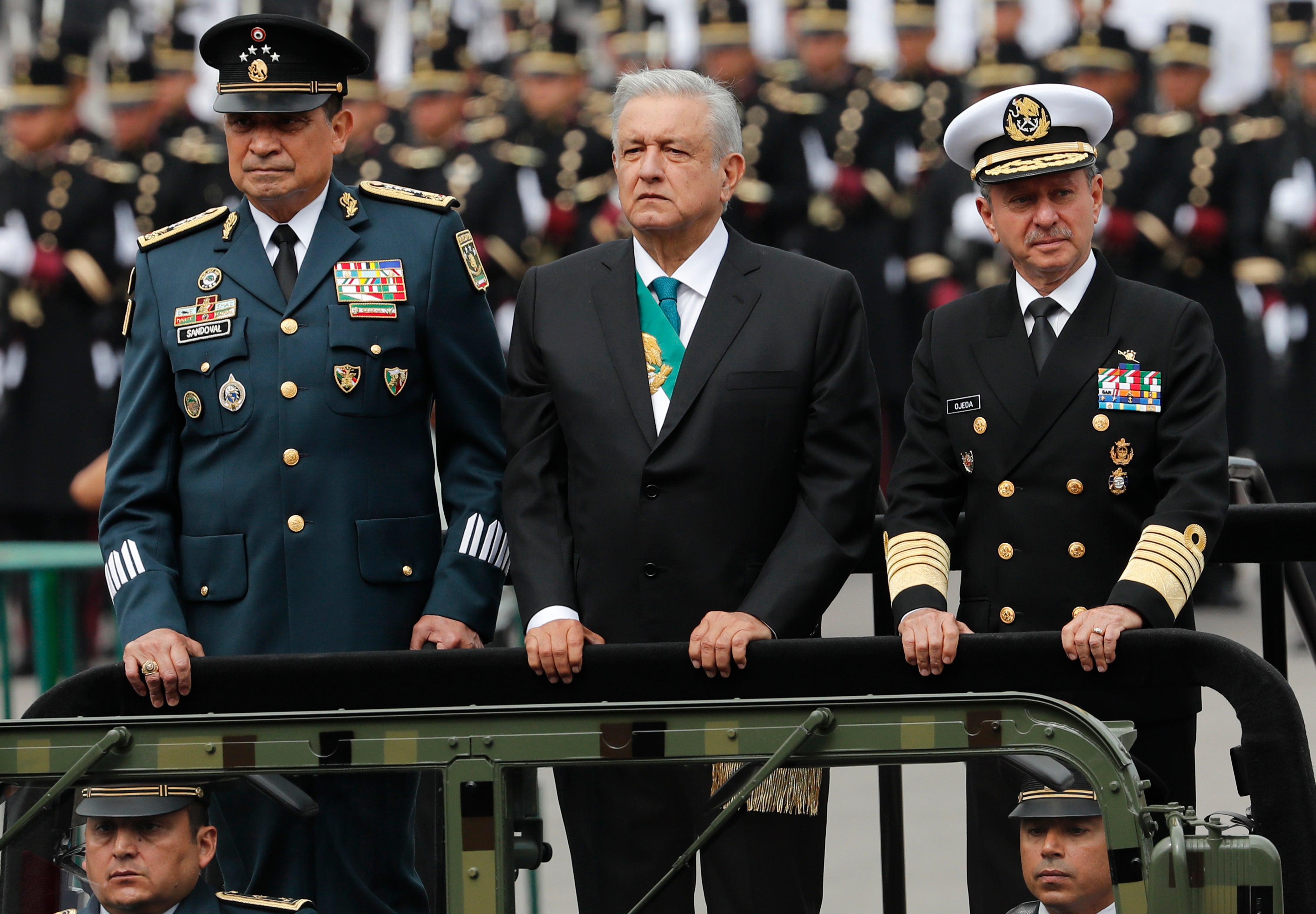Mexican president gives navy part of southern rail-port
President Andrés Manuel López Obrador has again expanded the military’s role in Mexico’s economy, announcing he will give the navy part ownership of the multi-modal rail and port link across the country’s southern isthmus

Your support helps us to tell the story
From reproductive rights to climate change to Big Tech, The Independent is on the ground when the story is developing. Whether it's investigating the financials of Elon Musk's pro-Trump PAC or producing our latest documentary, 'The A Word', which shines a light on the American women fighting for reproductive rights, we know how important it is to parse out the facts from the messaging.
At such a critical moment in US history, we need reporters on the ground. Your donation allows us to keep sending journalists to speak to both sides of the story.
The Independent is trusted by Americans across the entire political spectrum. And unlike many other quality news outlets, we choose not to lock Americans out of our reporting and analysis with paywalls. We believe quality journalism should be available to everyone, paid for by those who can afford it.
Your support makes all the difference.President Andrés Manuel López Obrador again expanded the military's role in Mexico's economy Friday, announcing he will give the navy part ownership of the multi-modal rail and port link across the country’s southern isthmus.
In December, López Obrador said the army will be given operating control and any profits from another of his pet projects, the Maya Train across the Yucatan peninsula. The army would use any profits to finance military pensions.
The president’s actions could make the military a major economic player, a role it has never occupied in the past. Army engineers are already in charge of building many of Mexico’s infrastructure projects, and López Obrador also has increased the military’s role in law enforcement.
While Mexican generals played leading roles in the 1910-17 revolution and post-revolutionary governments in the 1920s and 1930s, since the 1940s the army has been unusual in Latin America in that it has rigorously stayed out of politics and the general economy.
In return, a long succession of Mexican presidents made the army off-limits to outside scrutiny. By tradition, there has never been a civilian defense secretary, and the president does not directly name the person for that post, choosing from a list of acceptable generals submitted by the army.
On Friday, López Obrador said the navy will be given ownership of the Isthmus of Tehuantepec rail and seaport corridor across the narrow waist of Mexico's south, along with the governments of the four states that the project runs through or benefits. The rail link will connect seaports on the Pacific coast and the Gulf of Mexico, acting as an alternative to the Panama Canal.
“It is going to be turned over to the Navy Department and the four states with a plan that the profits be given to navy employees and the workers of the states of Tabasco, Chiapas, Veracruz and Oaxaca ” López Obrador said.
The president is a big fan of the military, having placed them largely in charge of his newly created National Guard, and given the army responsibility for building everything from airports to trains.
López Obrador does not want his pet projects to be privatized by subsequent administrations, and sees the military, which has traditionally enjoyed both respect and autonomy, as a safe repository.
But experts worry the army's traditional lack of accountability to outside regulators and the sudden inflow of power and money could foment corruption in its ranks.
However, it is far from clear how the military will be able to run tourism-related projects like the Maya Train and whether any of the airport or rail projects it has been given will ever turn any profits.
The Maya Train would run some 950 miles (about 1,500 kilometers) in a rough loop around Yucatan. to connect Caribbean beach resorts to the peninsula’s interior, with largely Indigenous populations and ruin sites, in a bid to stimulate economic development around its 15 stations. The government says it will cost as much as $6.8 billion, but others say it will be much more.
Critics say that the train will damage the environment and Maya communities along its path and that proper environmental impact and feasibility studies have not been carried out.